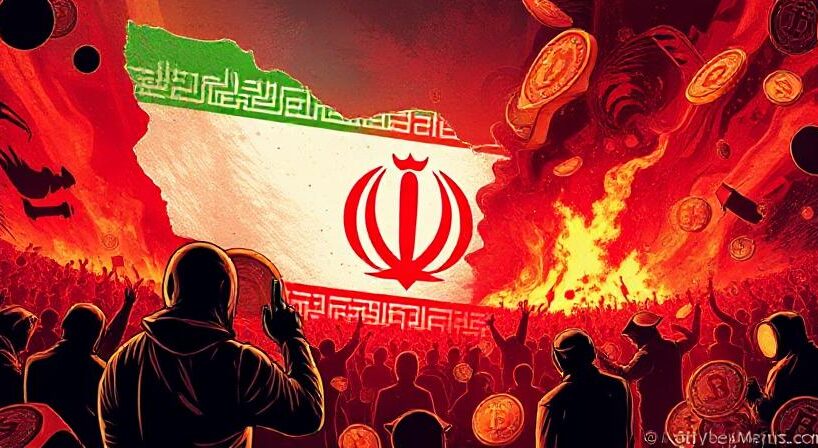
Iran’s cryptocurrency sector is facing severe strain as geopolitical tensions, sanctions, and a major exchange breach continue to erode investor confidence and market activity.
According to TRM Labs, crypto flows involving Iranian entities dropped to $3.7 billion between January and July 2025—an 11% decline from the previous year. The situation worsened dramatically after April, with inflows in June plunging over 50% year-over-year and July volumes collapsing by more than 76%. Analysts attribute the downturn to the 12-day conflict with Israel in June, which caused widespread disruptions across financial and digital channels.
Nobitex Hack Sparks Liquidity Crisis
The June 18 hack of Nobitex, Iran’s largest crypto exchange, by the pro-Israel hacker group Predatory Sparrow, wiped out over $90 million in assets and dealt a heavy blow to market stability. Liquidity dried up for both retail and institutional users, while trust in domestic platforms plummeted.
Adding to the pressure, Tether froze a record number of Iranian-linked wallets in July, cutting off critical stablecoin liquidity. This forced traders to rapidly pivot to alternative platforms and methods to maintain access to U.S. dollar-pegged assets, essential for cross-border trade and hedging against inflation.
Despite the turmoil, Nobitex still handles around 87% of Iranian-linked crypto transactions, particularly outbound flows, indicating that while local confidence may have weakened, the need for crypto as a vehicle for capital flight persists.
Outbound Flows and Strategic Use of Crypto Continue
While inflows have cratered, outbound crypto volumes remain steady. TRM Labs highlights that Iranian entities continue to leverage digital assets for wealth preservation, sanctions evasion, and procurement of sensitive technologies like drone components and AI hardware.
Investigations have revealed that wallets tied to Nobitex were actively moving funds for months using obfuscation techniques associated with money laundering. Reports further suggest that Iranian intelligence operations have utilized cryptocurrency, with Israeli authorities arresting several alleged spies believed to have been compensated in digital assets.
Regulatory Adjustments Amid International Pressure
Under mounting global sanctions, Iran has developed a unique crypto regulatory framework, requiring domestic exchanges to obtain licenses while tacitly endorsing crypto use for international trade. However, the Nobitex breach exposed vulnerabilities in this system, raising questions about transparency and the long-term viability of domestic exchanges.
Despite setbacks, cryptocurrency remains deeply embedded in Iran’s economic strategy, both as a hedge against inflation and as a tool for circumventing financial isolation. Yet, the latest crisis underscores a fragile ecosystem where security failures and geopolitical risks could dictate the future of crypto adoption in the country.







